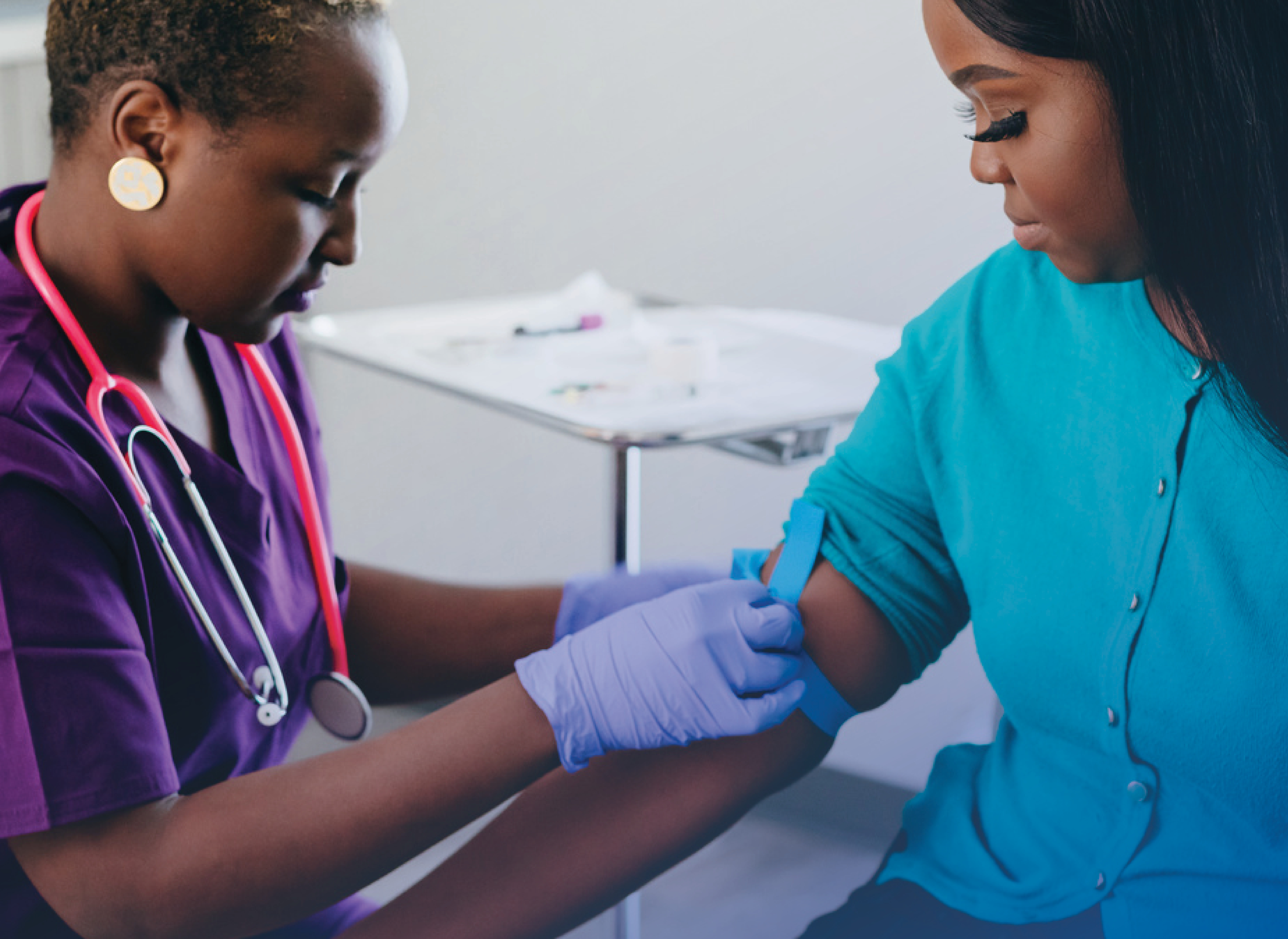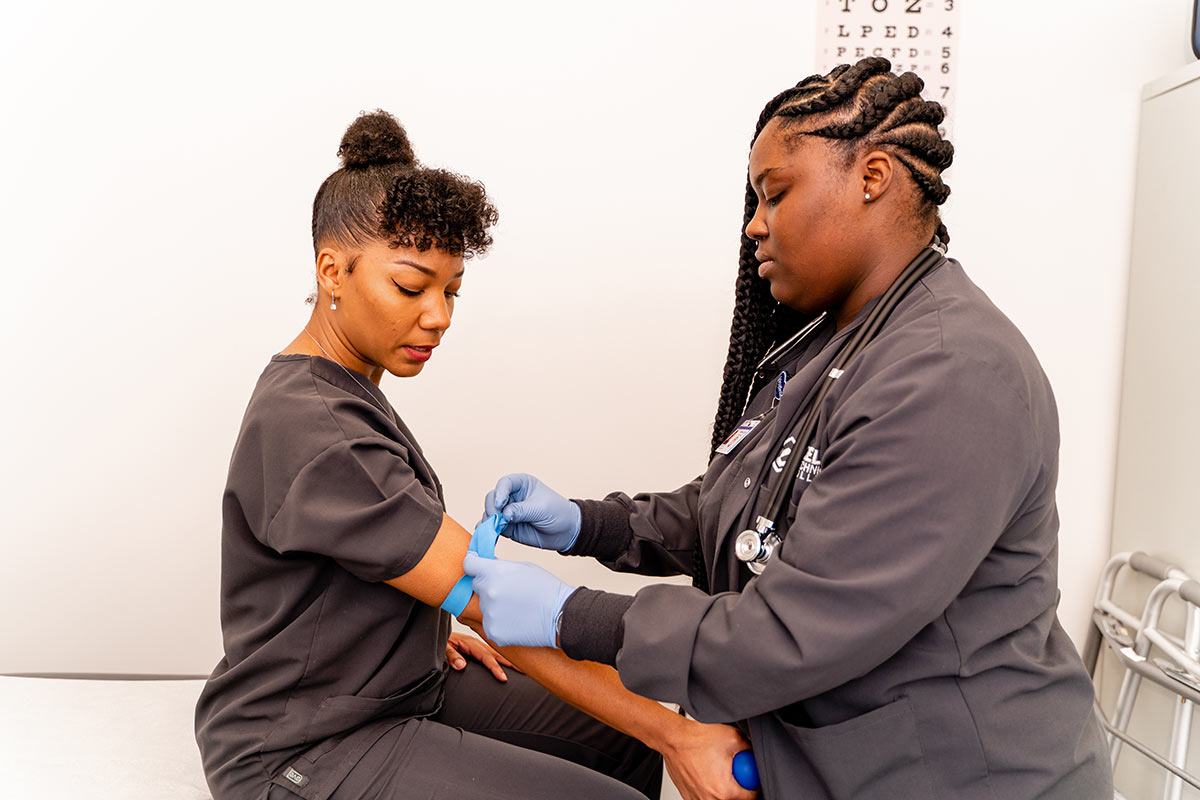Phlebotomy Classes Near Me: Factors to Consider When Picking a Local Training Option
Phlebotomy Classes Near Me: Factors to Consider When Picking a Local Training Option
Blog Article
The Course to Certification: Understanding the Phlebotomy Educating Course Journey and Its Relevance
As you consider the path to qualification in phlebotomy, it is essential to recognize the role you'll play in health care. Your training will certainly cover vital skills, from blood collection methods to patient interaction. Each element of the program prepares you for the challenges ahead. But what specifically does the trip involve, and why is accreditation so critical for your future career? Allow's discover these concerns even more.

The Role of Phlebotomists in Healthcare
Phlebotomists play an essential duty in the healthcare system, acting as the crucial web link in between clients and vital analysis screening. You'll perform blood draws, ensuring samples are accumulated properly and safely. Your experience assists in detecting clinical problems, keeping track of wellness, and leading therapy choices.
In your daily communications, you'll need to establish trust fund with individuals, making them feel comfortable during what may be a difficult experience. You're liable for identifying and managing samples meticulously to avoid contamination or mistakes, which might impact test outcomes.
Past this, you'll typically function along with medical professionals and nurses, communicating important information concerning people' problems. By grasping your abilities, you contribute meaningfully to client care, making you an indispensable part of the clinical team.
Introduction of Phlebotomy Training Programs
When checking out phlebotomy training programs, you'll locate various kinds created to fit various routines and learning styles. Each program assists you develop vital abilities like blood collection and patient interaction. Comprehending these alternatives is essential to selecting the ideal path for your occupation.
Types of Training Programs
Numerous sorts of training programs are available for those wanting to become skilled in phlebotomy. You can select from certification programs, which usually last a few months and concentrate on essential skills. There are likewise diploma programs that offer an even more detailed education and learning, often lasting approximately a year. If you're searching for a deeper understanding, an associate level in an associated field may be the best fit. Online courses supply flexibility for those balancing job or family members dedications, enabling you to study at your very own rate. Furthermore, some hospitals and facilities supply on-the-job training programs, giving functional experience while you discover. Whatever path you select, each program aims to equip you with the essential abilities for an effective phlebotomy job.

Secret Skills Established
Grasping phlebotomy calls for a collection of vital abilities that are established with extensive training programs. You'll find out technological abilities like correct capillary option, needle insertion, and blood collection strategies. These hands-on techniques guarantee you can execute treatments securely and successfully. Furthermore, communication skills are basic; you'll require to engage with people, clarify procedures, and put them secure. Recognizing composition and physiology is crucial, too, as it aids you locate blood vessels and recognize the body's response to blood draws. Ultimately, you'll obtain understanding of safety and security protocols and infection control, ensuring you keep a sterilized atmosphere. Each of these skills is necessary for your success as a qualified phlebotomist, making you an important possession in any type of medical care setup.
Secret Parts of a Phlebotomy Course
In a phlebotomy course, you'll concentrate on necessary subjects that lay the foundation for your future job. You'll take part in hands-on training that enables you to use what you've found out in real-world settings. Both the core curriculum and useful experience are essential for your success as a phlebotomist.
Core Curriculum Introduction
While pursuing a phlebotomy training program, you'll experience a curriculum designed to equip you with basic abilities and expertise. Phlebotomy Classes Near Me. This educational program usually consists of composition and physiology, concentrating on the blood circulation system and comprehending blood components. You'll also learn more about various kinds of blood collection approaches, consisting of venipuncture and capillary slit strategies
Furthermore, infection control and safety and security protocols are necessary parts, guaranteeing you understand just how to maintain a sterilized setting. You'll research patient communication, emphasizing interaction and empathy, which are important for easing individual stress and anxiety. Honest and legal considerations will certainly be resolved, preparing you for real-world responsibilities. This fundamental understanding will certainly enable you to succeed as a phlebotomist and give quality treatment in clinical setups.
Hands-On Training Experience
Getting hands-on experience is a vital component of your phlebotomy training program. This practical training allows you to use what you have actually found out in a real-world setup, boosting your skills and confidence. Phlebotomy school.
Furthermore, you'll get the opportunity to engage with patients, which is vital for creating your communication abilities. This mix of technical efficiency and social abilities is critical for your success as a qualified phlebotomist. Ultimately, hands-on training is where theory fulfills technique, solidifying your knowledge and readiness for certification.
Accreditation and Licensing Requirements
Before you can start your profession in phlebotomy, it is crucial to understand the accreditation and licensing demands that vary by state. A lot of states need phlebotomists to hold a qualification from a recognized organization, such as the National Phlebotomy Association or the American Society for Medical Pathology. These qualifications usually include passing a test that examines your knowledge and abilities in the area.
Along with accreditation, some states have particular licensing needs. You might require to complete a specific variety of hours in clinical method, submit proof of training, or go through a background check. It is essential to investigate your state's policies to make certain you satisfy all required standards.
Remaining educated concerning these needs not just assists you secure a placement but also improves your integrity as a professional. By meeting these needs, you'll be well on your means to an effective career in phlebotomy.
Hands-On Training and Practical Experience
Hands-on training and functional experience are important components of your phlebotomy education, as they allow you to use academic understanding in real-world circumstances. During your training, you'll participate in supervised venipuncture, discover appropriate strategies, and end up being acquainted with numerous blood collection tools. This direct involvement is vital for building your confidence and developing your skills.
You'll function very closely with skilled experts that can guide you via the nuances of individual interaction and example handling. Each session not only enhances your understanding but also prepares you for the busy environment of health care setups.
In addition, numerous programs incorporate clinical rotations, allowing you to experience varied settings, from medical facilities to outpatient centers. This exposure aids you adapt to different obstacles and client requirements, ensuring you're well-prepared for your future role. Welcome these Phlebotomy Training Course opportunities, as they're important to ending up being a competent and compassionate phlebotomist.
Difficulties Faced During Training
While obtaining hands-on experience is necessary, it's essential to identify the obstacles that can emerge throughout your phlebotomy training. You might encounter anxiousness when doing treatments on real patients, especially if you're brand-new to the setting. The stress to obtain everything right can be overwhelming. In addition, mastering the abilities required for blood draws takes technique; you might have problem with method initially.
Time management can additionally be an obstacle, as harmonizing concept, practical sessions, and personal dedications can feel daunting. You might deal with varying learning rates amongst your peers, causing sensations of self-doubt if you assume you're falling back. Adapting to the different personalities of instructors can be tough, as each may have a distinct teaching design.
Identifying these obstacles early on can prepare you for success and assist you establish strength throughout your training trip.
Career Opportunities After Accreditation

As you get experience, you could also consider specializing in locations like pediatric or geriatric phlebotomy, satisfying certain person demands. Some phlebotomists select to advance their jobs by becoming lab professionals or pursuing further education and learning in medical care fields.
Furthermore, your accreditation can bring about roles in training or supervising brand-new phlebotomists, allowing you to share your expertise. With the healthcare market constantly growing, your skills will constantly be in need, leading the method for a steady and fulfilling career. Accept the possibilities awaiting you!
Often Asked Concerns
What Is the Normal Duration of a Phlebotomy Educating Course?
Phlebotomy training courses commonly last around four to 8 weeks. You'll engage in hands-on technique, class direction, and on-line knowing. Completing this training prepares you for certification and a gratifying career in healthcare.
Are Online Phlebotomy Courses Available?
Yes, online phlebotomy training courses are readily available. They supply flexibility and ease, allowing you to examine at your own speed. Simply confirm the program is approved to meet certification demands and acquire important skills for your job.
Just How Much Does Phlebotomy Training Generally Price?
Phlebotomy training commonly sets you back in between $700 and $2,500, relying on the program and area. You ought to consider factors like program length, consisted of materials, and hands-on experience when choosing the ideal training for you.
What Prevail Requirements for Phlebotomy Training?
Typical requirements for phlebotomy training typically consist of a high school diploma or GED, booster shots, and a background check. Some programs may also need basic health care expertise or accreditations, guaranteeing you're prepared for hands-on training.
Can I Work While Finishing My Phlebotomy Training?
Yes, you can work while finishing your phlebotomy training. Lots of pupils equilibrium jobs with their studies, however ensure to manage your time properly to ensure you meet both job and training dedications successfully.
Report this page